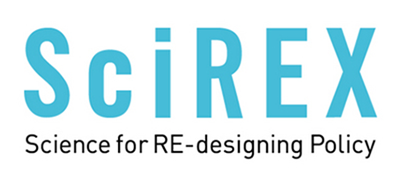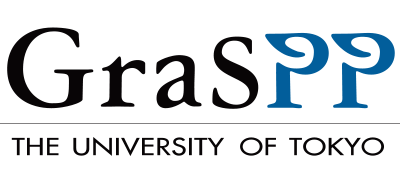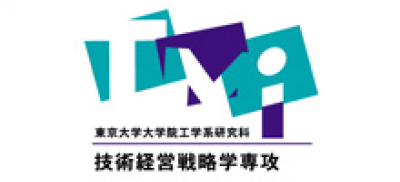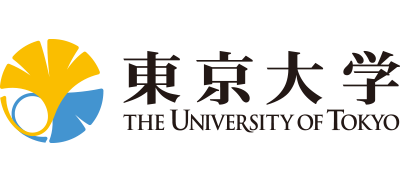- Hideaki Shiroyama, “Kokusaiteki na data governance no kadai to taio [International data governance: Issues and responses],” Research Reports No. 14, The Research Group on Economy-Security Linkages, The Japan Institute of International Affairs, March 24, 2021,(https://www.jiia.or.jp/column/post-73.html)
- Makiko Matsuo and Masashi Tachikawa, “Genome henshu wo meguru kaigai doko [Overseas trends in genome editing],” in Yutaka Tabei, ed., Genome Henshu Shokuhin: Norinsuisan Bunya e no Oyo to Jizokuteki Shakai no Jitsugen [Genome-edited Foods: Application to the Agricultural, Forestry, and Fisheries Sectors and the Realization of a Sustainable Society], NTS Shuppan, 2021, pp. 132-141.
- Masashi Tachikawa andMakiko Matsuo, “Genome henshu sakumotsu no kisei to shakai juyo [Regulation and social acceptance of genome-edited crops],” in Saishin no Genome Henshu Gijutsu to Yoto Tenkai [The Latest Genome Editing Technology and the Development of Its Uses], CMC Publishing, 2021, pp. 175-182.
- Masashi Tachikawa and Makiko Matsuo, “Shokubutsu e no genome henshu oyo ni kansuru kokunaigai no kisei doko [Domestic and international regulatory trends in applications of genome editing to plants],” in Genome Henshu Gijutsu wo Oyo shita Seihin Kaihatsu to Sono Jitsuyoka: Kenkyu Kaihatsu Doko Kadai Kaiketsusaku Gijutsu Yosoku to Shijo Tenbo [Genome Editing Technology Applied Product Development and Implementation: R&D Trends, Problem Solving Measures, Technology Forecast and Market Outlook], Technical Information Institute, 2021, pp. 572-580.
- Makiko Matsuo, interview article, “Kagaku to shakai ga tomoni ayumu sekai wo tsukuru [Creating a world in which science and society work together],” Institute for Future Initiatives, The University of Tokyo, 2020.
https://ifi.u-tokyo.ac.jp/projects/fep/matsuo/ - Quentin Verspieren, Yuichiro Nagai and Hideaki Shiroyama. Evaluating Japanese University-Led Space Technology Development and Utilisation Capacity Building Programmes in Emerging Countries. STIG Space Policy Report no. 1. Tokyo, Japan: Graduate School of Public Policy, The University of Tokyo, March 2021.
- Marco Aliberti and Quentin Verspieren (eds.). “New Space in Asia: Experts views on space policy and business trends in Asian countries”. European Space Policy Institute Report 77. Vienna, Austria: European Space Policy Institute, January 2021.
- Quentin Verspieren. “Historical Evolution of the Concept of Space Traffic Management since 1932: The Need for a Change of Terminology,” Space Policy, 2021.
https://doi.org/10.1016/j.spacepol.2021.101412 - Quentin Verspieren, Takeshi Matsumoto, Yoshihide Aoyanagi, Takayoshi Fukuyo, Toshihiro Obata, Shinichi Nakasuka, George Kwizera and Joseph Abakunda. "Store and Forward 3U CubeSat Project TRICOM and Its Utilizations for Development and Education: the cases of TRICOM-1R and JPRWASAT,” Transactions of the Japanese Society for Aeronautical and Space Science 63(5), 2020, pp. 206-211.
- Quentin Verspieren. “The United States Department of Defense Space Situational Awareness Sharing Program: origins, development and drive towards transparency,” Journal of Space Safety Engineering, 2020. doi:10.1016/j.jsse.2020.10.001
- Maximilien Berthet, Quentin Verspieren, Giulio Coral, Ryohei Takahashi, Nobuhiro Funabiki, Sarot Srang, Hoksong Tim, Morokot Sakal. “Student-Led Policy and Technical Capacity Building Program: The Road to Cambodia's First CubeSat,” 71st International Astronautical Congress - The CyberSpace Edition, Online, October 2020.
- Quentin Verspieren. “The role of Multilateral Development Banks in Mainstreaming the Use of Space and Geospatial Technologies for Sustainable Development,” Business Strategy and Development 3(3), September 2020, pp. 369-376.
- Masahiro Kakuwa, “‘Shell-ryu’ scenario planning wo megutte: Rekishi, shuho, riron (dai 2 kai) [‘Shell-style’ scenario planning: History, methods, and theory (Part 2)],” Electro-Heat, March 2021.
- Masahiro Kakuwa, “Royal Dutch Shell Group no itten keiryu bui system no donyu to unyo [Introduction and operation of a single point mooring buoy system of the Royal Dutch Shell Group],” Petrotech, January 2021.
- Masahiro Kakuwa, “‘Shell-ryu’ scenario planning wo megutte: Rekishi, shuho, riron (dai 1 kai) [‘Shell-style’ scenario planning: History, methods, and theory (Part 1)],” Electro-Heat, January 2021.
- Masahiro Kakuwa, “Scenario planning shuho kara kiko hendo mondai wo kangaeru [A look at climate change issues from a scenario planning approach],” Risk Management Today, November 2020.
- Masahiro Matsuura, “Jizokukano na new town ni muketa transition management: Misono Wing City ni okeru jikken [Transition management for sustainable new town development: An experiment at Misono Wing City],” Review of Governance Studies, No. 16, 2020, pp. 49-71.
- Jihyun Na, “Ekibyo to suppai budo: Kansen keiro tsuiseki ni matsuwaru kenryoku shudan ni tsuite [Epidemics and sour grapes: The power tools for tracing infectious pathways],” Gendai Shiso [La revue de la pensée d’aujourd’hui], Vol. 48, No. 12, 2020.
- Byeongwoo Kang, Kazuyuki Motohashi, Academic contribution to industrial innovation by funding type ", Scientometrics, 124, 169-193, 2020.
- Daiya Isogawa, Hiroshi Ohashi, and Sohoko Furuta, “Koritsu byoin saihen ni okeru hiyo sakugen koka [Cost effect of mergers: Public hospitals in Japan],” Economic Analysis, No. 201, February 2021.
- Ryo Makioka, Yoichi Sekizawa, and Akira Yamaguchi, “Monozukuri hojokin no koka bunseki: Kaiki furenzoku design wo mochiita bunseki [The impact of subsidies for small and medium-sized firms in Japan: A regression discontinuity design approach],” RIETI Discussion Paper 20-J-032, June 2020.
- Yarime, Masaru, "Governing Data-driven Innovation for Sustainability: Opportunities and Challenges of Regulatory Sandboxes for Smart Cities," AI for Social Good, United Nations Economic and Social Commission for Asia and the Pacific (ESCAP), Association of Pacific Rim Universities (APRU), and Google, 180-202, 2020.
- Ahl, Amanda, Masaru Yarime, Mika Goto, Shauhrat Chopra, Manoj Kumar Nallapaneni, Kenji Tanaka, and Daishi Sagawa, "Exploring Blockchain for the Energy Transition: Opportunities and Challenges Based on a Case Study in Japan," Renewable and Sustainable Energy Reviews, 117, 109488, 2020.
- Yarime, Masaru, "Facilitating Innovation for Smart Cities: The Role of Public Policies in the Case of Japan," in Yu-Min Joo and Teck-Boon Tan, eds., Smart Cities in Asia: Governing Development in the Era of Hyper-Connectivity, Cheltenham, UK: Edward Elgar, 93-106 (2020).
- Asokan, Vivek Anand, Masaru Yarime, and Motoharu Onuki, "A Review of Data-Intensive Approaches for Sustainability: Methodology, Epistemology, Normativity, and Ontology," Sustainability Science, 15, 955–974, 2020.
- Kazuyuki Motohashi, Chen Zhu (2020.5) ,"Technological Competitiveness of China's Internet Platforms: Comparison of Google and Baidu Using Patent Text Information, RIETI Discussion Paper 20-E-045
- Shibayama, S. & Wang, J. Measuring Originality in Science. Scientometrics, 122(1): 409-427, 2020.
- Alessandro Muscio, Sotaro Shibayama & Laura Ramaciotti The effects of the academic environment on Ph.D. entrepreneurship: new insight from survey data. In University-Society Knowledge Interactions – New Perspectives and Approaches. Springer, Springer series on International Studies in Entrepreneurship, 2020.
- Tohru Yoshioka-Kobayashi & Sotaro Shibayama, Determinants of career selection by master students in life and information sciences. IFI working paper series, 2020.
- Kuniko Matsumoto, Sotaro Shibayama, Byeongwoo Kang & Masatsura Igami, A validation study of knowledge combinatorial novelty. NISTEP DISCUSSION PAPER, Tokyo, 2020.
- Tohru Yoshioka-Kobayashi & Sotaro Shibayama, Early career training and development of academic independence: a case of life sciences in Japan. Studies in Higher Education (forthcoming), 2020.
- Tohru Yoshioka-Kobayashi, Hiroya Aoki, Atsushi Akiike, and Yasufumi Morinaga, “Ishoho kaisei ni tsuite no keieigaku to hogaku no kakyo: Tokuni keieigaku kara mita hyoka [Bridging business administration and jurisprudence on the revision of the Design Act: An assessment from a business administration perspective],” Intellectual Property Journal, No. 13, 2020, pp. 19-27.
- Hu, W., Yoshioka-Kobayashi, T., Watanabe, T., "Determinants of patent infringement awards in the US, Japan, and China: A comparative analysis, " World Patent Information, 60, 2020.
https://www.sciencedirect.com/science/article/pii/S0172219018300991 - Hirokadu Aminaka and Tohru Yoshioka-Kobayashi, “Nihon ni okeru crowd funding wo tsujita kagaku kenkyu shien no doki [Motivation for supporting scientific research through crowdfunding in Japan],” The Journal of Science Policy and Research Management, Vol. 35, No. 1, 2020, pp. 77-95.
- Modic, D., & Yoshioka-Kobayashi, T. (2020). Individual-level determinants of academic patent licensing to start-ups: impacts of principal investigators’ embeddedness in the industry. Research Handbook on Start-Up Incubation Ecosystems (pp.349-365). Edward Elgar, Cheltenham: U.K.
- Tohru Yoshioka-Kobayashi, Yuuki Maruyama, Yuri Hirai, and Toshiya Watanabe, “‘Hongo Valley’ wa naze umaretaka: Daigakuhatsu venture shuseki no riyu [Why ‘Hongo Valley’ attracts high-tech academic spin-offs?: Determinants of an academic spin-off cluster],” Hitotsubashi Business Review, Vol. 67, No. 4, 2020, pp. 46-61.
1 Research
1-2 Results related to science, technology and innovation governance achieved by STIG project members
AY2020
Papers (peer-reviewed papers, invited papers, university bulletins, etc.) and reports
Books (single-authored and co-authored)
- Hideaki Shiroyama, ed., Global Hoken Governance [Global Health Governance], Toshindo, August 2020.
Makiko Matsuo“Dai 4 sho Fukugo risk to shite no Ebola shukketsunetsu to governance no shippai [Chapter 4 Ebola virus disease as a complex risk and governance failure]”; Makiko Matsuo and Hideaki Shiroyama, “Dai 5 sho global hoken kaikaku: G7 ni okeru giron to WHO kokuren segin ni okeru taio [Chapter 5 Global health reform: Discussions at the G7 and the responses of WHO, the UN, and the World Bank].” - Muscio, A., Shibayama, S. & Ramaciotti, L. (2020) The effects of the academic environment on Ph.D. entrepreneurship: new insight from survey data. In University-Society Knowledge Interactions – New Perspectives and Approaches. Springer, (Springer series on International Studies in Entrepreneurship)
- Hideaki Shiroyama, “Shakai ni okeru kagaku gijutsu no governance no senmonka no yakuwari [The role of experts in the governance of science and technology in society],” in IEEJ Engineering Ethics Committee, ed., Kotetsu to Denshi no To: Ikanishite Kagaku Gijutsu wo Katari, Kagaku Gijutsu to Ayumuka [Steel and Electronic Towers: How to Talk About and Coexist with Science and Technology], Morikita Publishing, December 2020, pp. 178-214.
- Hideaki Shiroyama, “Japan’s Response to the COVID-19,” Paul Joyce, Fabienne Maron, and Purshottama Sivanarain Reddy, eds., Good Public Governance in a Global Pandemic, Brussels: IIAS, 2020, pp. 195-204, peer reviewed.
Lectures and panelist appearances at academic conferences and other events
- Hideaki Shiroyama, “Different Types of Transition: Case Studies of the Kitakyushu Eco-Town Project and the Toyama Compact City Project,” Institute for Future Initiatives and Hitachi-UTokyo Laboratory: Study Workshop on Transition for Sustainable Society Transformation, online, The University of Tokyo Hongo Campus, Tokyo, Japan (March 18, 2021).
- Hideaki Shiroyama, “Governance of Interconnected Risks: Climate Change from the Perspective of Transition,” Institute for Future Initiatives and SDGs Symposium: The Nexus of International Politics in Climate Change and Water Resource, online, Tokyo, Japan (February 22, 2021).
- Hideaki Shiroyama, “International Data Governance: Issues and Responses,” 8th Meeting of the Study Group on Economy and Security, The Japan Institute of International Affairs, online, Tokyo, Japan (January 26, 2021).
- Hideaki Shiroyama, “International Data Governance Challenges and Responses,” Sixth Exchange Study Session of The University of Tokyo Graduate Schools for Law and Politics and Peking University Law School “The Latest Issues of Data Security and Personal Information Protection in Japan and China,” online, TKP Garden City Premium Marunouchi Pacific Century Place, Tokyo, Japan (January 24, 2021).
- Hideaki Shiroyama and Tomoko Suzuki, “Socio-technical Scenarios for Carbon Neutrality in 2050,” Hitachi-UTokyo Laboratory: Third Industry-Academia Collaboration Forum “Toward Realizing Energy Systems to Support Society 5.0,” online, Tokyo, Japan (January 18, 2021).
- Hideaki Shiroyama, “Japan’s Response to the COVID-19,” IIAS (International Institute of Administrative Sciences) 90th Anniversary Conference, online, Brussels, Belgium (December 16, 2020).
- Hideaki Shiroyama, “The Impact of COVID-19 and Future of Global Health Governance and Beyond,” 12th Annual Conference Five-University Collaboration on East Asia Conflict and Cooperation, online, Princeton, USA (December 11, 2020).
- Hideaki Shiroyama “Governance of the Marine Plastics Issue,” Sustainable Future Society Creation Platform, The University of Tokyo, online, Tokyo, Japan (November 25, 2020).
- Hideaki Shiroyama, “Technology Assessment and Social Design Issues: The Case of Automated Driving,” FY2020 Third Liaison Meeting of the Mobility Innovation Collaborative Research Organization, online, Kashiwa, Japan (September 10, 2020).
- Hideaki Shiroyama, “Japan’s Response to the COVID-19,” e-IIAS (International Institute of Administrative Sciences) 2020 Conference session on “The COVID-19 Pandemic and Public Governance: Measures and Lessons Learned,” online, Brussels, Belgium (June 24, 2020).
- Makiko Matsuo “Lessons Learned from Risk Governance Perspective,” UBC- the University of Tokyo ONLINE panel discussions on Ten Years after Fukushima: Commemoration and Lessons for the Future, 19th of March, 2021.
- Makiko Matsuo, “Biotechnology/Bioeconomy and Transition: The Significance of Incorporating Future-Oriented Analysis into Current Policy Processes,” Hitachi-UTokyo Laboratory: Study Workshop on Transition for Sustainable Society Transformation, online hybrid, Ito International Research Center, March 18, 2021.
- Makiko Matsuo, “Discussion Points of Science and Political/Policy Decisions: From the Perspective of Risk Studies,” The Society for Risk Analysis, Japan 33rd Annual Meeting, Open Symposium “How to Tackle Multi-level Risk Trade-offs: The Science and Field Decision-making of Emerging Infectious Disease Control,” online, November 21, 2020.
https://www.sra-japan.jp/SRAJ2020HP/wp-2020/symposium/ - Taketoshi Taniguchi, “A Review of the Energy Issue,” First Jibungotoka Meeting in Matsue Plover Hall, Matsue City General Culture Center, online, February 7, 2021.
- Taketoshi Taniguchi, “Perspectives for Considering the Nuclear Power Issue,” First Jibungotoka Meeting in Tokai Village, online, Tokai Industry and Information Plaza, December 19, 2020.
- Taketoshi Taniguchi, “Raising Awareness of Risk: An Organizational Risk Management Perspective,” 15th Annual Congress of Japanese Society for Quality and Safety in Healthcare session “What is the ideal safety management department to attract the attention of frontline medical professionals? Exploring the factors which make the frontline passive and their solutions,” online, November 22, 2020.
- Taketoshi Taniguchi, “Introduction to the Initiatives of the Japan Petroleum Institute” (joint lecture with Prof. Takeo Kikkawa), 56th Congress of the Business History Society of Japan, December 6, 2020.
- Masahiro Matsuura, Hideo Yamanaka, Kaho Makio "Applicability of Transition Management Approaches to the Japanese Planning Context"Association of Collegiate Schools of Planning 2020 Annual Conference (online) [2020 Nov.]
- Quentin Verspieren. “Opening Keynote of Day 2 on Space Traffic Management,” 21st The Advanced Maui Optical and Space Surveillance Technologies (AMOS) Conference, Maui, Hawaii, 17 September 2020. doi:10.13140/RG.2.2.18428.16006
- Quentin Verspieren. “The Search for Superiority: Japan’s Recent Efforts on National Security Space,” lecture given for the association Jeunes de l’Institut des Hautes Études de Défense Nationale, 28 October 2020.
- Quentin Verspieren.“The US Air Force compliance with the Orbital Debris Mitigation Standard Practices,” 21st The Advanced Maui Optical and Space Surveillance Technologies (AMOS) Conference, Maui, Hawaii, September 2020.
- Quentin Verspieren.“International Panel 1,” 2021 CubeSat ID and Tracking Industry Day Technical Workshop, organized by the Aerospace Corporation, online, 12 January 2021.
- Quentin Verspieren.“Moving towards space traffic coordination and management,” IASC 2021 Commons in Space Conference, online, 24 February 2021.
- Quentin Verspieren.“On orbit servicing – The case study in economics and collaboration,” The 6th National Space Policy Secretariat’s Symposium on Ensuring Safe and Sustainable Use of Outer Space, online, 4 March 2021.
- Quentin Verspieren.[Organizer and general moderator] [STIG International Workshop] New Space in Asia: Implications of the Rise of the Chinese Commercial Space Sector in Asia and Beyond, online, 9 March 2021.
- Quentin Verspieren.[Panel moderator] “New Space in Emerging Asian Countries,” SPACETIDE 2021 Spring: The Evolution of Commercial Space, online, 23 March 2021.
- Jihyun Na, “Informatization of Local Governments,” Study Group on Local Law and Politics, January 2021.
- Koichi Kikuchi, “Governance of Deep Space: International Space Law and the Artemis Accords,” Space Law Mini Seminar hosted by Keio University, Tokyo, Japan, November 2020.
- K. KikuchiI. Kuriyama, T. Iwai, Y. Kagiwada, “A Regional Initiative for Studying the Status of National Space Laws”, International Astronautical Congress, IAC-20-E7.5.10, October 2020.
- Koichi Kikuchi, “JSASS Space Vision 2050 Comprehensive Space Policy Roadmap,” New Space Global Strategy Lab, August 2020.
- Daiya Isogawa, “Estimating the Value of Power Outages Using Load Data: An Empirical Analysis Considering Cross-Point Substitution of Demand,” 2020 Japanese Economic Association Autumn Meeting, Rissho University, online, October 2020.
- Yarime, Masaru, "Open Data for Sustainability: Opportunities and Challenges in Asia-Pacific," A Catalyst for Change - A live virtual roundtable dialogue on the latest Sustainable Finance Developments across Asia and the Pacific, co-hosted by the Pacific Basin Economic Council (PBEC), ESCAP Sustainable Business Network (ESBN), and KPMG, UN-ESCAP 8th Annual Asia-Pacific Forum on Sustainable Development (APFSD), March 24 (2021).
- Yarime, Masaru, "Algorithmic Approaches to Decision Making: Implications for Foresight Studies and Practices," Blended Futures: Learning from Art, Design, Urban Design, Science-Fiction and Algorithmics to Revitalize Foresight Practices, High-Level Futures Literacy Summit, United Nations Educational, Scientific, and Cultural Organization (UNESCO), December 11 (2020).
- Yarime, Masaru, "Innovative, Data-Driven Business Models," APO Productivity Talk, Asian Productivity Organization (APO), November 24 (2020).
- Yarime, Masaru, "Data-Driven Innovation for Sustainable Smart Cities: Opportunities and Challenges in Public-Private Partnership," Virtual Conference on Smart Public Service Delivery, organized by the Development Academy of the Philippines as APO Center of Public Sector Productivity, November 9 (2020).
- Yarime, Masaru, "Governing Data-Driven Innovation for Sustainability: Opportunities and Challenges of Regulatory Sandboxes for Smart Cities," Panel on Access to Data, Computing Power, Hardware & Infrastructure, AI for Social Good Summit, organized by the United Nations Economic and Social Commission for Asia and the Pacific (ESCAP), Association of Pacific Rim Universities (APRU), and Google, November 3 (2020).
- Yarime, Masaru, "Opportunities and Challenges in Innovation for Sustainable Smart Cities: Trust in Processes, Transactions, and Governance," Workshop on Trust in the Smart City, Department of Government and International Studies, Hong Kong Baptist University, October 29 (2020).
- Yarime, Masaru, "Facilitating Innovation for Sustainable Smart Cities: Stakeholder Collaboration and Engagement," Keynote Speech, Smart Cities Live Webinar: Hong Kong & Trikala in the Post-COVID Era, organized by the Greek Chamber of Commerce in Hong Kong and the Division of Public Policy (PPOL) of the Hong Kong University of Science and Technology (HKUST), October 27 (2020).
- Yarime, Masaru, "Opportunities and Challenges in the Use of Data in Tackling COVID-19: Public Health, Privacy, and Innovation," Online Symposium on the Use of Information Technology and Privacy in Tackling COVID-19, organized by Japan Law Foundation, July 30 (2020).
- Tohru Yoshioka-Kobayashi, “Acceptance Factors of Research Administrators in Universities: Hypothesis Derivation from the Perspective of Management Innovation Theory,” FY2020 Research Presentation Conference of the Academic Association for Organizational Science, online, June 6, 2020.



